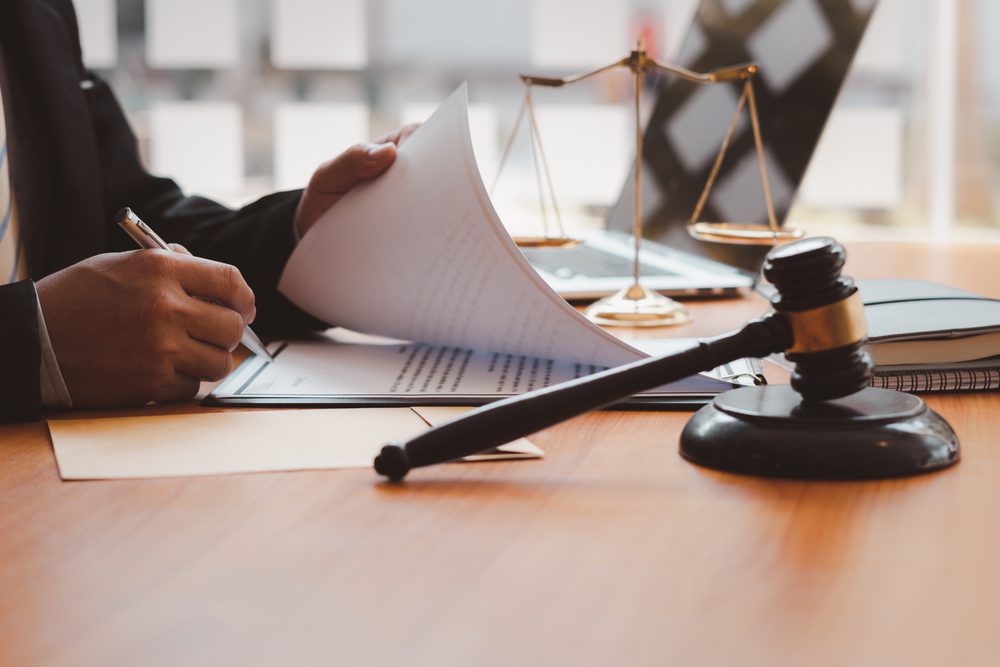Advertiser Disclosure: Many of the companies featured here provide compensation to us. This is how we maintain our free service for consumers. Compensation, along with hours of in-depth editorial research, determines where & how companies appear below.
Bankruptcy can be scary, but it doesn’t have to be your last resort. There are laws in place to protect you and your creditors, so you can get back on your feet. With a little help, you can make a fresh start.
Bankruptcy can be a difficult process, but it is designed to help people and businesses get a fresh start. Although you may have to give up some of your assets, all of them will be measured and evaluated to determine how they can be used to repay part of the outstanding debt.
What creditors can take in a bankruptcy
Your creditors can come after any of your assets in a Chapter 7 bankruptcy, including:
- Vehicles
- Land
- Houses
- Investment Properties
- Savings accounts
- Any other items of value, like artwork or jewelry
With federal and state bankruptcy exemptions, there is a limit to how many of these values can be kept.
What you can keep when filing for bankruptcy
Bankruptcy exemptions are designed to help protect your property during bankruptcy. However, the amount of protection you receive can vary depending on the process and the state you file in.
The following are some common federal bankruptcy exemptions. Note that married couples filing jointly can double the exemption amounts, and all amounts shown are for cases filed after April 1, 2022. These numbers will be adjusted again on March 31, 2025.

Property exemptions
Filing for bankruptcy may exempt you from having to sell your primary residence, as long as the equity in the home is below a certain limit. The federal homestead exemption allows you to protect $27,900 of equity in your home.
Other types of residences may also qualify for the homestead exemption, including:
- A house or another dwelling
- Personal property used as a residence
Vehicle exemptions
Bankruptcy can often be a difficult and confusing process, but one important thing to keep in mind is that your vehicle may be exempt from seizure by creditors. Depending on the type of bankruptcy you file, as well as the value of your vehicle, you may be able to keep your car or truck.
Under federal law, you may be able to exempt up to $4,450 of equity in your vehicle. This means that even if you owe more than the value of your car, you may still be able to keep it in bankruptcy. However, there are some caveats.
- Your trustee may sell your vehicle to pay creditors. However, you are entitled to receive a certain amount of money from this sale, known as an exemption.
- As a borrower, it’s important to stay on top of your payments.
- The best way to get out from under an auto loan after bankruptcy is to surrender the vehicle. This relieves responsibility for the loan and lets the lender know that the debtor is no longer able to make payments.
Personal items and household goods exemptions
Several different things can be exempt from bankruptcy, including real estate and vehicles. However, personal property may also qualify for exemption in some cases. Here are some of the most commonly claimed federal personal property exemptions:
- $1,870 for jewelry
- $2,800 for tools of the trade
- $14,875 in aggregate ($700 for each item) for household goods and furnishings, appliances, clothing, animals, books, crops, or musical instruments
- $13,400 in accrued interest, dividend, or loan value of a life insurance contract
- Professionally prescribed health aids
Wages, benefits, and retirement account exemptions
Your retirement savings and benefits are exempt from many taxes. This includes money you receive as a benefit or support, as well as the money you have saved for retirement.
- Alimony, support, or maintenance that you reasonably need for your support
- Life insurance payments that you need for support
- There are many different types of government benefits available to those who qualify. These include Social Security, unemployment, veterans, public assistance, and disability or illness benefits.
- You can keep the proceeds from your retirement accounts up to a maximum value of $1,512,350. However, there are some circumstances where you may not be able to keep all of the money.
Injury recovery exemptions
There are a few different types of damages that may be recovered through a personal injury lawsuit. These include:
- $27,900 for personal injury recovery, not including pain and suffering or pecuniary loss.
- Compensation for loss of future earnings necessary for the support.
- Payment for the wrongful death of a person you depended on for support.
- Compensation due to being a victim of a crime.
Wildcard exemptions
You may use a wildcard exemption for any type of property. This exemption is $1,475 plus any unused portion of your $13,950 property exemption.
Federal vs. state exemptions

The rules for exempting assets in bankruptcy vary from state to state. In a few states, you can choose which set of rules to use: the state exemptions or the federal exemptions. They are the following:
- Alaska
- Arkansas
- Connecticut
- District of Columbia
- Hawaii
- Kentucky
- Massachusetts
- Michigan
- Minnesota
- New Hampshire
- New Jersey
- New Mexico
- New York
- Oregon
- Pennsylvania
- Rhode Island
- Texas
- Vermont
- Washington
- Wisconsin
You have to follow federal regulations if your state does not have its own laws.
Chapter 7 Bankruptcy vs. Chapter 13 Bankruptcy
There are many options for dealing with bankruptcy, but two of the most common are Chapter 7 and Chapter 13. Each has its own set of benefits and drawbacks, and it’s important to understand how they differ before deciding which one is right for you.
Chapter 7 bankruptcy allows you to legally discharge most of your debts, meaning you are no longer liable for them. There are some restrictions on which debts can be discharged, and you must pass a means test to qualify. However, this option could lead to you losing some of your nonexempt property, such as secondary residences or investments. Additionally, any property transfers that you made before filing for bankruptcy may be reversed under Chapter 7.
Chapter 13 bankruptcy is more complex than Chapter 7, but it may be a better option for those who want to keep their property.
Filing for bankruptcy under Chapter 13 allows you to set up a repayment plan to slowly pay off your debt over 3-5 years. However, this period was extended to 7 years after President Biden signed the Bankruptcy Relief Extension Act into law in 2021. One of the benefits of this process is that your property is protected, and creditors cannot garnish your wages. Additionally, unlike in Chapter 7 bankruptcy, your debt will not be forgiven–but you will be able to make monthly payments based on your disposable income.
What you should know before filing for bankruptcy

Your bankruptcy filing will have a lasting impact on your credit score. A Chapter 7 bankruptcy will stay on your credit report for 10 years, while a Chapter 13 bankruptcy will remain for 7 years.
There are many benefits to hiring a lawyer to handle your bankruptcy, despite not being legally required to do so. A lawyer can provide invaluable assistance and guidance throughout the process, helping you to navigate the often complex legal landscape.




